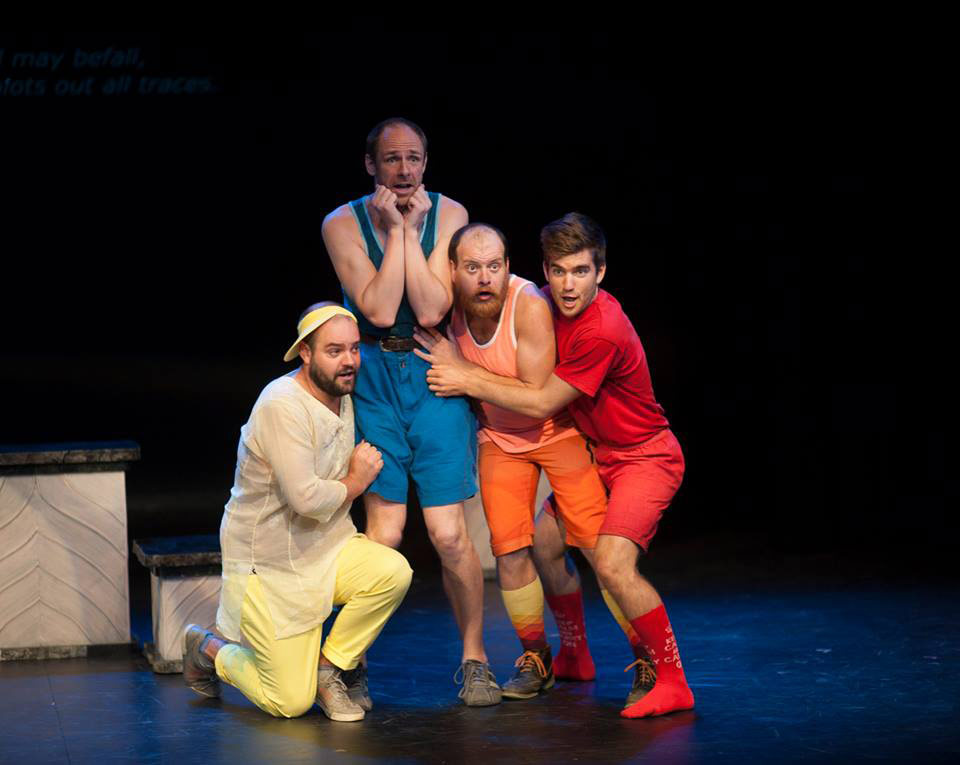
The life of a comprimario, or "Oh, you're that guy!"
Op-edSo you want to be a comprimario? Great! There’s lots of work for you if you’re good it, but beware, it’s not as glitzy and glamorous as playing Violetta or Don José, but it’s just as labour-intensive.
First thing you’ll have to remember is that you’re probably there for your fine acting ability. If you’re cast in an opera, the assumption is you’re already a fine singer, but don’t expect people to gush over your beautiful tone or fabulous cadenza - ‘cause the chances of you having an aria are slim to none. On the flip side, you’ll be singing some of the most interesting music in every show - namely the ensemble numbers. Don’t let that fool you though, those numbers are often the most difficult music in the show as well, so you need to have your chops in order.
For instance in Verdi’s Falstaff, Bardolfo and Pistola are present almost all the time and work on both sides of the cuckold coin. They don’t get much in the line of music, but what they do get is the amazing ensembles throughout the show and awesome parts in the final fugue. Are you singing Marcellina and your aria’s cut? Don’t worry, you still get the Act II finale and the sextet. So there’s lots of beautiful music to sing - and isn’t more fun to make music with other singers?
Secondly, you’ll also get recognized a lot, but they probably won’t remember your name, or how many shows they’ve actually seen you in. You’ll find yourself standing in a lobby talking to a bunch of people who loved your performance, and oftentimes they’ll expound on their opera experiences, talking about favourite (and not-so-favourite) productions, only to realize you’ve been in several of them. I URGE you to take this as a compliment when they don’t recognize you in the lobby or at the stage door right away. Trust me, it means you’re doing your job extremely well.
Thirdly, you need to be smart. Not book-smart, but body-smart and environment-smart. Trust me on this. More than once something will happen in your show or rehearsal that means you’re going to save the day. Zerbinetta may lose her mirror, Mimì her candle, or Don José his knife, and nine times out of ten YOU will be the one to save the scene. Being a comprimario takes the spotlight off you in certain ways and that affords you a freedom and mobility around the stage that the principals often won’t enjoy. There’s only so many ways you can play ‘dying woman on a deathbed” and still maintain the suspension of disbelief. However, if you’re playing Monostatos or Kate Pinkerton, you’re going to have a lot more freedom of characterization and physicality. Not to mention the scene-stealing factor - we’ve all experienced this with the Major-Domo in Ariade auf Naxos (gasp! a SPOKEN role) or Frosch in Die Fledermaus.

And last but not least, you will work hard and often. Everyone wants to be a Violetta or Giovanni, but each Barbiere needs a Bartolo, each Bohème needs a Benoit, every Carmen needs a Frasquita, the list goes on and on. The great thing is, you’ll be developing such a large arsenal of skills and amassing a HUGE résumé, you’ll find yourself being courted to play the bigger roles in no time. Take it from a guy who sang Alfred/Alphonse in La via Parisienne and Benoit/Alcindoro in La bohème, I’ve recently been given the roles of Escamillo in Carmen, Leporello in Don Giovanni, and Sir Jospeh Porter in HMS Pinafore.
So yes, we all love the big showstopping arias, the cadenzas that hit every note humanly possible to sing, we love the big gowns and the glitz and the production of it all, but it’s the story and the music that keep people coming to these shows - in some cases for more than 300 years - and it’s the hard work of the cast and crew and creative as a whole that tells said story.
You may not get the last bow in the curtain call, but you’ll always have a score in your pocket.

Never forget this: audiences love their comprimarios, and it’s the same in TV/Film/Theatre as well. Think of Will & Grace, and who do we really remember? Jack and Karen. A Midsummer Night’s Dream - you can tell me it’s about the four lovers all you want, give me the Mechanicals, please.
It’s a wonderful career and I have a blast when I’m playing my supporting roles - and believe it or not, you’ll work just as much (if not more) than any of the big lyric voices playing the leads.


Comments